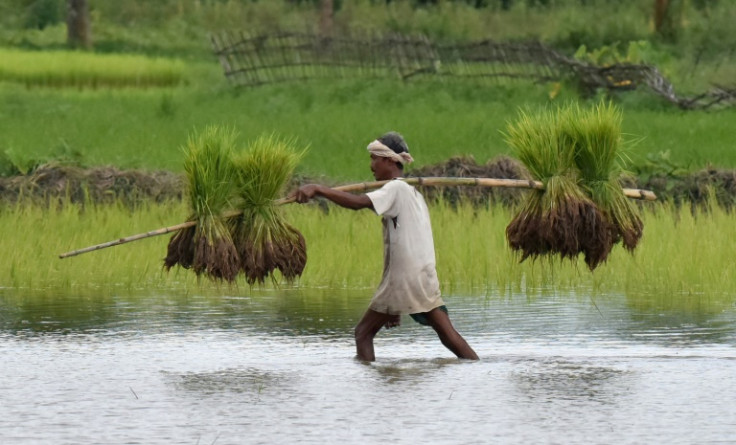India Makes Exemptions To Its Rice Export Ban To Reduce Impact On Friendly Countries

Amid global concerns over India's recent restrictions on rice exports, New Dlehi has allowed exports of non-basmati white rice to Bhutan, Mauritius and Singapore. The exemptions and India's history of providing wheat to poorer countries during a similar ban last year show that the government of Narendra Modi is taking a much more nuanced approach to balance domestic food inflation concerns with its self-proclaimed role as a supporter of the Global South.
India's Directorate-General of Foreign Trade (DGFT) on Wednesday allowed the export of 79,000 tons of rice to Bhutan, 14,000 tons to Mauritius and 50,000 tons to Singapore. The move came after these nations approached India to allow the shipment of white rice to meet their food requirements.
"India and Singapore enjoy a very close strategic partnership, characterized by shared interests, close economic ties and strong people-to-people connect. In view of this special relationship, India has decided to allow the export of rice to meet the food security requirements of Singapore," the Indian Ministry of External Affairs said.
India recently expanded its restrictions on the export of its non-Basmati white rice, announced last month, in an aggressive move aimed at restraining rising domestic prices and maintaining food security in the country.
As part of the export ban, the Indian government levied a 20% export duty on par-boiled rice until Oct. 15 while introducing a floor price on the export of Basmati rice at $1,200 a ton. The curbs are also aimed at stopping traders from attempting to send non-basmati white rice out of the country in the guise of the Basmati variety.
The regulations raised global concerns as India is the largest rice exporter in the world, holding a 45% share of the global rice market. Western media also panned the move, contending that it could trigger a global food crisis.
The demand for rice from the GCC (Gulf Cooperation Council) and European nations has surged 5-7%, further pushing up global prices. Russia's withdrawal from a UN-brokered grain export deal in the Black Sea also indirectly pushed up rice prices in the global market.
However, India's restrictions on internationally traded commodities are typically motivated by fundamental factors, such as rising prices, fear of domestic shortages and rising global demand. For example, rice-producing states in India witnessed erratic rainfall this year. While some states like Bihar, Uttar Pradesh, and Chhattisgarh experienced suboptimal rainfall, others like Punjab and Haryana saw floods, significantly damaging cultivated crops. This has led to delays in rice crop production and cultivation.
"Continuous rainfall significantly destroyed my rice crop production this year. I don't know how will I be able to overcome the loss," Raj Singh, a Haryana-based farmer, told International Business Times.
Plus, the government is highly sensitive to food price inflation in the country as Modi and his party seek reelection next year.
But New Delhi's export exemptions aim to fulfill the rice requirements of import-dependent nations, and show that the restrictions are more nuanced than a blanket ban they are made out to be.
Last year, despite a ban similar to what has been imposed on rice exports, India continued to export wheat to countries including Bangladesh, the Maldives and Nepal, to "continue to assist neighbors in their hour of need."
During that time, India called out the West for stockpiling food grains, similar to how COVID-19 vaccines were denied to poorer countries.
"What we saw was that the low-income buyers were being squeezed out, the wheat was growing, but was actually being stopped from being traded, in a way our goodwill was being used for speculation. So, we had to do something to stop that, because it was also impacting us at home -- prices were going up," India's External Affairs Minister Subrahmanyam Jaishankar said at the Globsec 2022 Bratislava Forum in June 2022.
"I want to be very clear about what we have done. We have actually said: look, we are not going to give speculators an open access to the Indian market, so that the Indian customer and the LDCs (least developed countries) of the world get the short end of that," Jaishankar added.
During the COVID-19 crisis, even as India struggled to overcome the impact of the pandemic, it offered support to more than 150 affected nations in the form of COVID-19 vaccines, medical equipment and medicines.
© Copyright IBTimes 2025. All rights reserved.






















